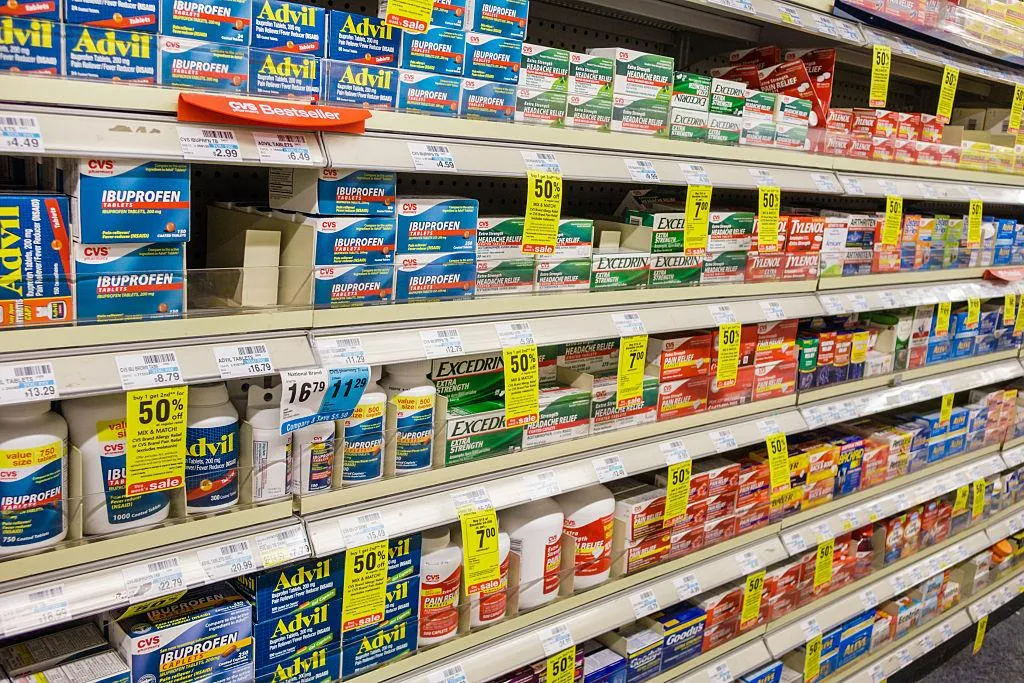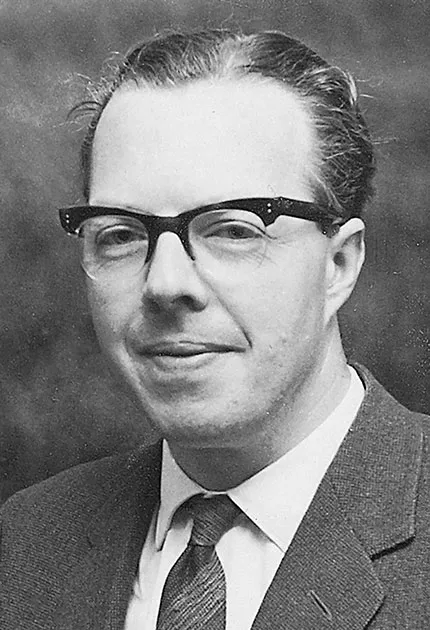The Inventor of Ibuprofen Tested the Drug on His Own Hangover
Stewart Adams’ headache subsided—and his over-the-counter pain reliever became one of the world’s most popular medications
/https://tf-cmsv2-smithsonianmag-media.s3.amazonaws.com/filer/8f/1c/8f1c3631-9f84-4fa7-9bcf-8ad2c34791d9/ibuprofen_inventor.jpg)
In retrospect, perhaps toasting the success of a new medication he helped invent with several shots of vodka in Moscow was not a good idea. However, it was too late to go back. English research scientist Stewart Adams was faced with the consequences of his actions: a serious hangover.
As he woke up that morning in 1971, Adams realized he needed to do something to relieve his throbbing headache, so he could coherently deliver an important speech at a pharmacological conference in a few hours. He reached for that new drug and swallowed a 600-milligram dose. Voila!
“He took a handful of ibuprofen and felt fine,” recalls his son David Adams. “No hangover!”
While the drug had been tested for pain in clinical trials, no one had yet tried it on an alcohol-induced headache. The older Adams would later say, “That was testing the drug in anger, if you like. But I hoped it really could work magic.”
Stewart Adams and his associate John Nicholson invented a pharmaceutical drug known as 2-(4-isobutylphenyl) propionic acid. It was later renamed ibuprofen and is now one of the world’s most popular nonsteroidal anti-inflammatory drugs (NSAIDs) under the brand names of Brufen, Advil, Motrin, Nurofen and others. It is estimated that one package of the product is sold every three seconds in the United States.

For their work, both Adams and Nicholson were inducted into the 2020 class of the National Inventors Hall of Fame. They were honored for creating a drug that is used worldwide to safely and effectively treat pain, fever and inflammation for conditions from arthritis, headaches and even hangovers.
“He was an incredibly dedicated and passionate scientist,” says his son, who followed his father’s footsteps in science. “He had several setbacks in his career, but he was quite determined. I always admired his persistence.”
One of those obstacles was, in fact, ibuprofen. Adams had originally set out to find a cure for rheumatoid arthritis. While he was obviously pleased with the success of ibuprofen, he was disappointed that he never developed a drug that would reverse the debilitating disease that affects millions of people.
“My father was enormously proud of what he accomplished, but readily admitted that it was based on a failure,” says David Adams, who is vice chancellor and head of the College of Medical and Dental Sciences at the University of Birmingham in England, as well as a medical doctor, professor of hepatology and researcher. “He really wanted to find a cure for rheumatoid arthritis. Ibuprofen became an effective treatment for the disease, but it was no cure.”
Stewart Adams began his career in pharmaceuticals at the young age of 16, when he started an apprenticeship at a drug store owned by Boots UK Limited, then known as Boots the Chemist. He went on to earn a degree in pharmacy at the University of Nottingham and then received his PhD in pharmacology at the University of Leeds. Adams rejoined Boots in the research department in 1952 and started working on a cure for rheumatoid arthritis. His goal was to develop something that was as effective as steroids but had none of the side effects.
Adams began his research by studying how aspirin worked, which no one else was doing at the time. He was interested in the drug’s anti-inflammatory properties and hoped to find something that mimicked those qualities but didn’t cause an allergic reaction, bleeding or stomach irritation like aspirin could.

Adams recruited Nicholson, a chemist, to help him test more than 600 different compounds in hopes of finding one that could reduce inflammation and that most people could tolerate. They narrowed down the field to five drugs. The first four went into clinical trials and all failed. The fifth, though, proved to be successful. They received a U.S. patent for ibuprofen in 1966. Three years later, it was approved as a prescription drug in England and soon became available around the world as an over-the-counter pain reliever.
Kim Rainsford edited a book on the drug, Ibuprofen: Discovery, Development and Therapeutics. The professor emeritus at Sheffield Hallam University in England is considered a leading authority on ibuprofen.
“It is handled and metabolized in the body very predictably,” he said in an interview with the BBC in 2011. “It accumulates very well in sites where you need pain relief. It’s got a very good safety profile, it’s got wide acceptance because it does control inflammation as well as the painful symptoms.”
David Adams says his father had a “wonderful sense of humor.” The son recalls how his dad helped him with a research paper that was actually critical of some of the attributes of ibuprofen. When it was published, someone approached the senior Adams and commented how the paper was authored by someone with the same last name. “Oh, that’s interesting,” Stewart Adams replied with a wry smile.
The younger Adams says his father liked to joke he was the only person who lost money on the invention of ibuprofen. Even though the drug was patented by him and Nicholson, who died in 1983, they received no royalties for its enormous success. In fact, Adams paid the 1 pound filing fee for the patent but never submitted the receipt for reimbursement by Boots.
As the popularity of ibuprofen spread, so did Adams’ fame. He was recognized for his achievement with numerous honors, including in 1987 an OBE, or Officer of the Order of the British Empire, which is bestowed by Queen Elizabeth upon people who make a significant impact in their field of work.
“Through their collaboration, Stewart Adams and John Nicholson were able to show that ibuprofen was safer and more effective than many previous pain relievers,” says Rini Paiva, executive vice president for selection and recognition at the National Inventors Hall of Fame. “Today, ibuprofen use is widespread, and it is one of the safest, most effective and most widely used treatments for reducing pain, fever and inflammation. All of this contributed toward the inclusion of Adams and Nicholson in our latest class of world-changing inductees.”
Adams even made it on a list with actor George Clooney as one of “The 50 men who really understand women.” Published by the Guardian in 2007, it ranked him 26th because ibuprofen had become “the most effective remedy for hangovers and period pain known to womankind.”
“He got on the list because of how the drug helped with menstrual pain,” says David Adams. “My mother was always amused by that and would say my father should have been on the list of men who least understood women.”
Joking aside, Adams says his mother, Mary, was extremely supportive of her husband and two sons, including Chris, a solicitor, or lawyer, in Nottingham. She was also a scientist but left the field to raise a family and later become a teacher.
Stewart Adams died in 2019 at the age of 95. His son says he was a humble person who went to the pharmacy and purchased ibuprofen just like everyone else. He didn’t make a big deal out of his invention but was particularly pleased about how it brought relief to millions of people.
“He was scrupulous about playing by the rules and would never expect a free supply from Boots,” David remembers. “He never mentioned that he was the inventor and listened patiently when the person selling it would ask if he had taken it before. Dad was a remarkable man.”
/https://tf-cmsv2-smithsonianmag-media.s3.amazonaws.com/accounts/headshot/dave.png)
/https://tf-cmsv2-smithsonianmag-media.s3.amazonaws.com/accounts/headshot/dave.png)